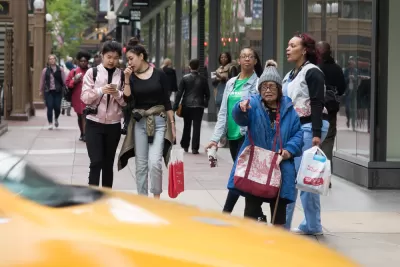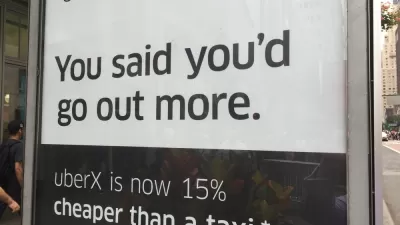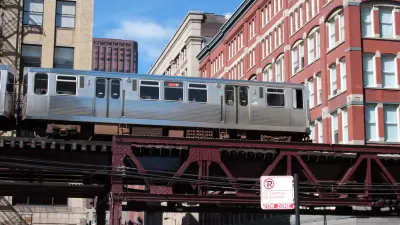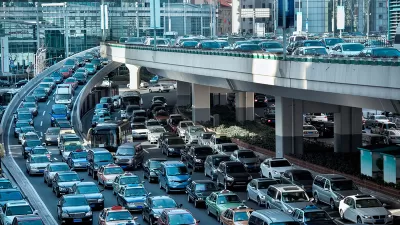After New York City approved a similar law earlier in Agust, two Chicago alderman have proposed a law that would limit the number of vehicles operating for transportation network companies like Uber and Lyft.

"Two Chicago aldermen are considering capping the number of ride-share vehicles driving for services like Uber and Lyft," reports Mary Wisniewski.
Ald. Anthony Beale, 9th, along with Ald. Edward Burke, 14th, are leading the legislative charge, citing congestion and better pay for drivers as reasons to cap the number of vehicles.
"The number of ride-share vehicles in Chicago has quadrupled in the last three years, to nearly 66,000, according to city data," adds Wisniewski.
If the law passes, the city would follow the lead of New York City, which recently pushed through a similar cap after failing in the effort just a few years prior.
FULL STORY: Too much of a good thing? Aldermen consider capping the number of ride-share vehicles

Planetizen Federal Action Tracker
A weekly monitor of how Trump’s orders and actions are impacting planners and planning in America.

Maui's Vacation Rental Debate Turns Ugly
Verbal attacks, misinformation campaigns and fistfights plague a high-stakes debate to convert thousands of vacation rentals into long-term housing.

Restaurant Patios Were a Pandemic Win — Why Were They so Hard to Keep?
Social distancing requirements and changes in travel patterns prompted cities to pilot new uses for street and sidewalk space. Then it got complicated.

In California Battle of Housing vs. Environment, Housing Just Won
A new state law significantly limits the power of CEQA, an environmental review law that served as a powerful tool for blocking new development.

Boulder Eliminates Parking Minimums Citywide
Officials estimate the cost of building a single underground parking space at up to $100,000.

Orange County, Florida Adopts Largest US “Sprawl Repair” Code
The ‘Orange Code’ seeks to rectify decades of sprawl-inducing, car-oriented development.
Urban Design for Planners 1: Software Tools
This six-course series explores essential urban design concepts using open source software and equips planners with the tools they need to participate fully in the urban design process.
Planning for Universal Design
Learn the tools for implementing Universal Design in planning regulations.
Heyer Gruel & Associates PA
JM Goldson LLC
Custer County Colorado
City of Camden Redevelopment Agency
City of Astoria
Transportation Research & Education Center (TREC) at Portland State University
Jefferson Parish Government
Camden Redevelopment Agency
City of Claremont





























